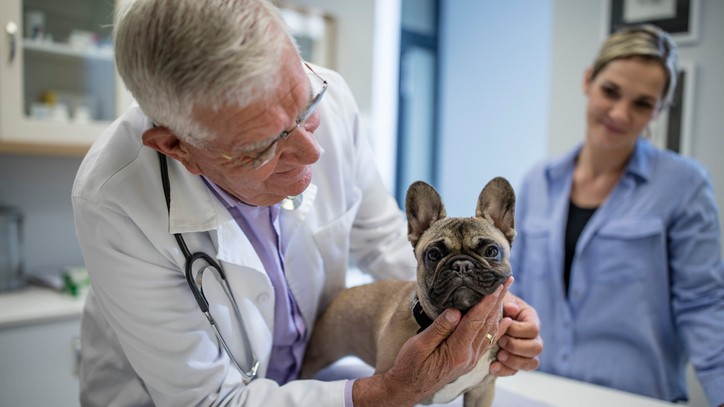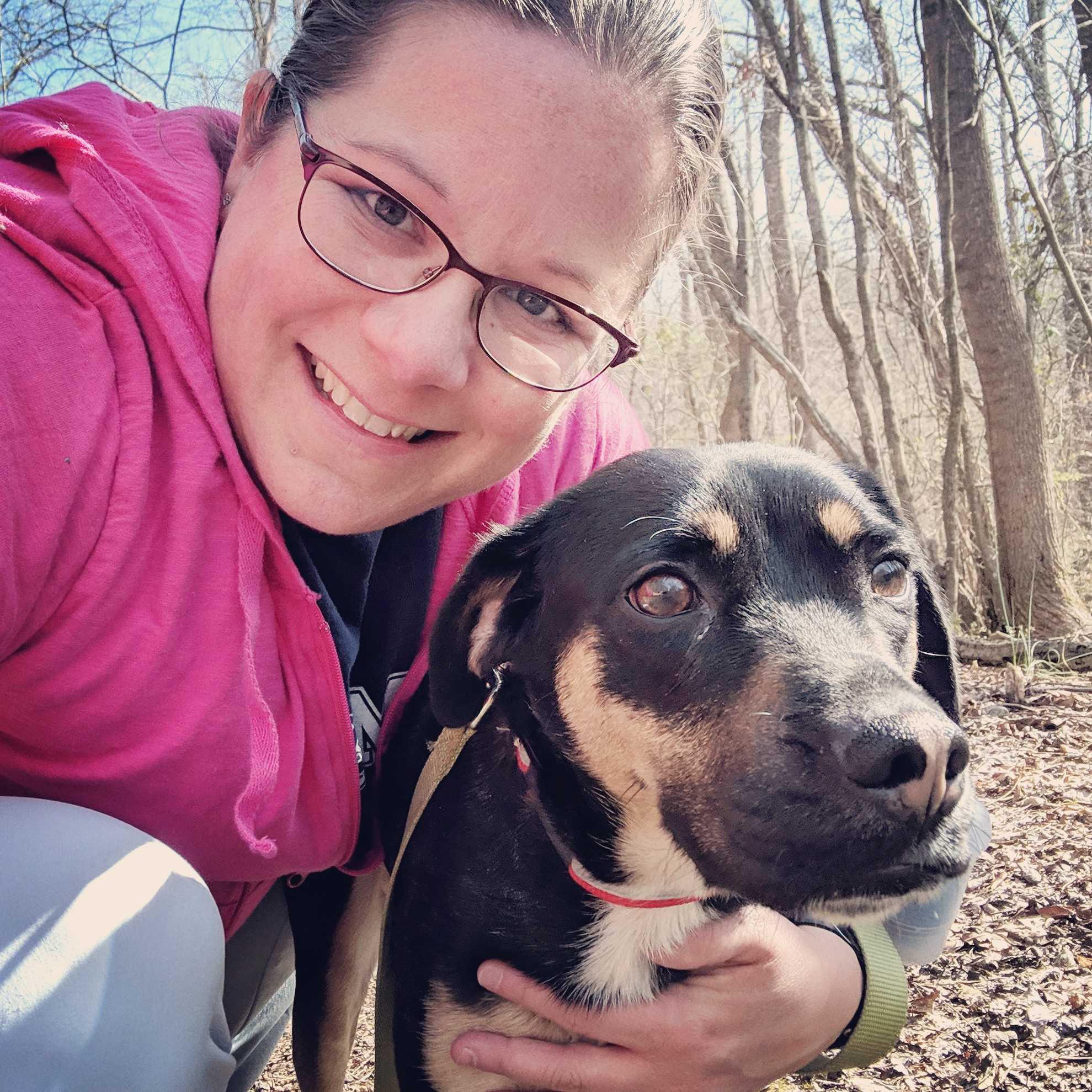Six common French Bulldog health issues
French bulldog health issues can be quite unique. Are you prepared?

If you own a French Bulldog, or have ever considered adding one to your household, it’s important to be well-versed in potential French Bulldog health issues. These dogs have many endearing qualities and make excellent companions, but they can also be a bit “high-maintenance” from a medical standpoint. French Bulldogs are genetically predisposed to several different medical conditions, just like many other purebred dogs. Knowing what to watch for can help you catch potential issues early, allowing for early treatment. Additionally, being prepared can minimize the likelihood that you are caught off-guard by an expensive condition.
1. Brachycephalic Obstructive Airway Syndrome
The same smooshed-in face that gives French Bulldogs their lovable appearance can also contribute to respiratory issues. French Bulldogs and other brachycephalic (smoosh-faced) breeds often have a number of airway abnormalities, including abnormally narrow nostrils, an elongated soft palate, an abnormally narrow trachea (windpipe), and a narrowed or collapsed larynx (voicebox). This combination of respiratory abnormalities, referred to as Brachycephalic Obstructive Airway Syndrome, can make it difficult for French Bulldogs to breathe. Heat stress, intense exercise, or even excitement can cause a respiratory crisis in French Bulldogs, in which the dog is unable to take in enough oxygen to survive. Unfortunately, this can prove fatal if untreated.
Some aspects of Brachycephalic Obstructive Airway Syndrome can be corrected surgically. For example, surgery to widen the nostrils is a relatively common procedure in these dogs, as is surgical trimming of the elongated soft palate. Other aspects of this condition, however, do not have a simple surgical cure. French Bulldogs and other dogs with Brachycephalic Obstructive Airway Syndrome require careful monitoring and often must have their heat exposure, exercise, and excitement levels limited to prevent a crisis.
2. Skin allergies
Allergic skin disease is one of the more common French Bulldog health issues. Skin allergies in dogs often involve the same airborne allergens that trigger respiratory allergens in people, such as grass, tree pollen, and weeds. Less commonly, dogs may develop allergies to a specific protein within their food. Allergies lead to itching, redness of the skin, and hair loss. In some cases, the skin may become so inflamed that bacteria or yeast proliferate out of control, leading to a skin infection.
Your veterinarian can prescribe a number of treatments to address skin inflammation, including pills, injections, and/or medicated shampoos. Your vet may also recommend allergy testing, to identify the specific allergens that are causing the reaction, as well as treatments that attempt to desensitize your dog to those allergens. Regardless of the treatment protocol that is used, however, it’s important to note that allergies are managed, not cured. A dog with allergic skin disease will probably need at least intermittent treatments for the remainder of his lifetime.
3. Ear infections
Ear infections, like skin disease, are often caused by underlying allergies. In French Bulldogs, however, anatomy may also be a contributing factor. Just like the respiratory tract, the ear canals of a French Bulldog may be very narrow. This makes it easy for debris and moisture to become trapped, leading to an ear infection.
A first-time ear infection is usually treated with ear cleaner and medicated ear ointment. If ear infections become a recurrent problem, however, your veterinarian will work with you to identify underlying causes that may contribute to the ear infection. Your dog may need regular ear cleanings, an allergy management program, or other treatments to decrease the frequency of ear infections.
Get the best advice, tips and top tech for your beloved Pets

4. Spinal malformations
When it comes to French Bulldog health issues a spinal mutation known as hemivertebrae can be particularly nasty. “Hemi” literally means “half,” so hemivertebrae are half-vertebrae. A hemivertebra lacks the normal block-like vertebral shape and is instead shaped like a wedge. This abnormal wedge shape affects how the hemivertebra fits against its adjacent vertebrae. In some cases, the misalignment puts abnormal pressure on the spinal cord, interfering with the flow of nerve impulses from the brain to the hind end of the body. Affected dogs are often painful and may lose control of their legs, bladder, and bowels. Some dogs experience brief flare-ups that can be treated with medical therapy, while other dogs require surgical treatment to alleviate the spinal cord compression caused by hemivertebrae.
5. Intervertebral disk disease
Intervertebral disk disease, or IVDD, is another spinal issue that is more common in French Bulldogs than other breeds. Intervertebral disks are located between the vertebrae of the spine and act as soft, spongy shock absorbers. These disks are shaped like a jelly donut, with a more structured exterior and a soft center; they allow the vertebrae to move and bend without scraping against each other. In IVDD, however, these disks break down and bulge from their normal location. This bulging places pressure directly on the spinal cord, similar to what is seen in dogs with hemivertebrae. IVDD is painful and can lead to loss of function of the legs, bladder, and bowels. Some cases can be managed with rest and anti-inflammatory medications, but emergency surgery may be required if a dog begins to lose limb function.
6. Corneal ulcers
Those cute, forward-facing French Bulldog eyes are, unfortunately, less protected from the environment than the eyes of other dog breeds. This makes French Bulldog eyes more susceptible to trauma and scratches, which can lead to a corneal ulcer one of the nastier French Bulldog health issues. Signs of a corneal ulcer include redness of the eye, squinting, and discomfort (which may lead to pawing at the eye). With early diagnosis, most corneal ulcers can be treated with antibiotic drops. In more severe cases, surgery may be required and permanent scarring may occur.
Be informed
While these French Bulldog health issues may seem overwhelming, they don’t need to be! The key to helping your French Bulldog live a long and healthy life is to partner with a trusted veterinarian. Accept that your French Bulldog may require a bit more medical care over the course of his lifetime than other breeds; ensure that you have the time commitment and financial resources to provide that level of care. With proper medical care, you can enjoy a long and happy life with your French Bulldog.
Want to learn more about the breed? Here are our favorite French Bulldog facts
Dr. Barnette is a graduate of the University of Florida, where she received both her B.S. in Zoology and her Doctor of Veterinary Medicine (DVM). She has 15 years of clinical experience as a small animal veterinarian, treating dogs, cats, and occasional exotic patients. She now works as a freelance veterinary writer, creating educational content for veterinarians, veterinary team members, and dedicated pet owners. Dr. Barnette lives in southwest Florida with her husband and daughter (plus two cats, a dog, and a rescued dove!) and enjoys kayaking, biking, and hiking. Learn more about Dr. Barnette at www.linkedin.com/in/catherinebarnette.

